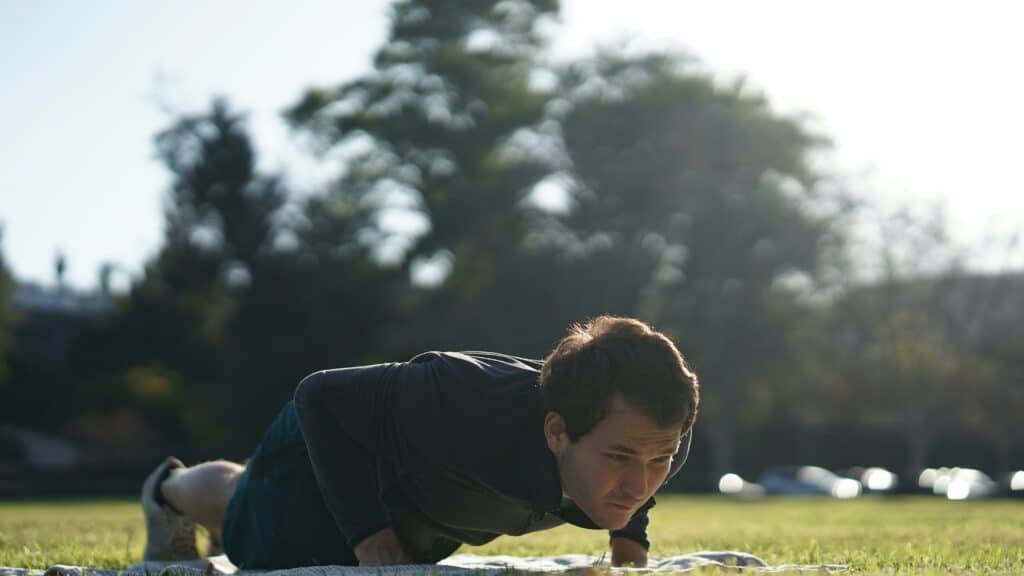Burnout affects millions of professionals worldwide, impacting their health and productivity. This article explores preventative health strategies to protect against burnout, focusing on establishing effective self-care routines and setting healthy boundaries. By implementing these evidence-based techniques drawn from systematic reviews and therapy research, you’ll learn how to safeguard your well-being and maintain a balanced lifestyle. Discover practical safety measures and disease prevention methods to fortify your mental and physical health against the challenges of a demanding work environment.
Key Takeaways
- Recognizing early signs of burnout is crucial for timely intervention and prevention
- Establishing effective self-care routines helps prevent burnout and maintain overall well-being
- Setting healthy boundaries is essential for managing workload and preventing burnout
- Enhancing time management skills can significantly reduce the risk of burnout
- Building a supportive social network and seeking professional guidance are vital for burnout prevention
Understanding the Signs of Burnout

Understanding burnout signs is crucial for prevention. This section explores physical symptoms, emotional indicators, and burnout-related behavioral changes. It examines how organizational culture and leadership in the healthcare industry can contribute to moral injury and impact employment. Recognizing these signs early allows for timely intervention and preventative strategies.
Recognizing Physical Symptoms
Physical symptoms of burnout can manifest in various ways, impacting one’s quality of life and mental health. Individuals may experience chronic fatigue, sleep disturbances, and frequent headaches or muscle tension.
These physical signs often coincide with emotional exhaustion, potentially leading to increased irritability or anger. Some people might turn to substance abuse as a coping mechanism, further exacerbating their health issues and burnout symptoms.
Identifying Emotional Indicators
Emotional indicators of burnout often include anxiety, fatigue, and a sense of detachment from work or personal life. Individuals may also experience decreased motivation, increased cynicism, and a loss of purpose in their professional roles.
Seeking support through mentorship programs or community groups can help address these emotional challenges and provide valuable coping strategies. Psychiatry professionals emphasize the importance of recognizing these signs early to prevent further deterioration of mental health and overall well-being.
Noticing Changes in Behavior
Behavioral changes often signal burnout, manifesting as decreased productivity, increased absenteeism, or neglect of self-care routines. Individuals may withdraw from peer support networks, resist new training opportunities, or struggle with technology adoption.
Poor sleep hygiene and reluctance to take vacations can further exacerbate burnout symptoms, highlighting the need for proactive measures to maintain work-life balance and overall well-being.
Establishing Effective Self-Care Routines

Establishing effective self-care routines is crucial for preventing burnout and compassion fatigue in primary care. This section explores key strategies: prioritizing restful sleep, incorporating physical activity, practicing mindfulness, and maintaining a nourishing diet.
These practices help reduce pain, increase happiness, and build resilience. By implementing these routines, individuals can protect their well-being and maintain the knowledge and skills needed for their professional roles.
Prioritizing Restful Sleep
Prioritizing restful sleep is crucial for preventing burnout in the workplace. Quality sleep improves mood, enhances learning capacity, and boosts energy for exercise. Individuals can establish a consistent sleep schedule, create a relaxing bedtime routine, and limit screen time before bed to combat burnout syndrome. These practices help restore the body and mind, preparing professionals for the challenges of their work environment.
Incorporating Physical Activity Into Daily Life
Incorporating physical activity into daily life is essential for preventing burnout and improving overall well-being. The World Health Organization recommends regular exercise to reduce stress and enhance mental health.
Individuals can explore outsourcing tasks to create time for physical activity, whether it’s a brief walk during lunch breaks or a gym session after work. General practitioners often emphasize the importance of movement in maintaining empathy and emotional resilience, which are crucial for professionals in psychotherapy and other demanding fields.
| Activity | Duration | Benefits |
|---|---|---|
| Walking | 30 minutes | Stress reduction, improved mood |
| Yoga | 45 minutes | Flexibility, mindfulness |
| Strength training | 60 minutes | Increased energy, better sleep |
Practicing Mindfulness and Relaxation Techniques
Practicing mindfulness and relaxation techniques can significantly reduce the risk of physician burnout. Psychologists recommend incorporating daily meditation or deep breathing exercises to manage stress and improve mental well-being.
When combined with a balanced diet and regular exercise, these practices form a comprehensive approach to preventing burnout.
Insurance companies often offer wellness programs that include resources for mindfulness training, recognizing its potential to decrease healthcare costs associated with stress-related illnesses.
Maintaining a Nourishing Diet
A nourishing diet plays a crucial role in maintaining health and preventing burnout. Nurses and other healthcare professionals often neglect proper nutrition due to demanding schedules, negatively impacting their sleep and overall well-being.
By focusing on balanced meals rich in nutrients, individuals can boost their energy levels, improve cognitive function, and enhance their ability to pay attention throughout long shifts. A well-planned diet supports both physical and mental resilience, helping to combat the effects of stress and fatigue:
- Include a variety of fruits and vegetables for essential vitamins and minerals
- Incorporate lean proteins to support muscle health and satiety
- Choose complex carbohydrates for sustained energy
- Stay hydrated with water and herbal teas
- Limit caffeine and sugar intake, especially before bedtime
Setting Healthy Boundaries at Work and Home

Setting healthy boundaries is crucial for preventing burnout in the workforce. This section explores managing workload expectations, allocating time for personal interests, and learning to decline additional responsibilities. These strategies help reduce cynicism and irritability, promoting positive behavior and emotional well-being at work and home.
Managing Workload Expectations
Managing workload expectations is crucial for preventing burnout, especially in shift work fields. Occupational health psychology emphasizes the importance of setting realistic goals and communicating limits to supervisors.
Employees should prioritize tasks, delegate when possible, and schedule regular breaks for eating and relaxation. By implementing these strategies, individuals can maintain a healthier work-life balance and reduce the psychological stress of overwhelming workloads.
Allocating Time for Personal Interests
Allocating time for personal interests is essential in preventing burnout and maintaining overall well-being. Individuals should schedule regular breaks for activities that bring joy and relaxation, such as meditation or hobbies, to reduce stress and headaches.
People can improve their mood, boost energy levels, and decrease reliance on caffeine by prioritizing personal time. This practice enhances the efficacy of work-life balance strategies, promoting a positive feeling of self-care and fulfillment:
- Set aside dedicated time for hobbies or relaxation activities
- Practice meditation or mindfulness exercises regularly
- Engage in physical activities or sports
- Pursue creative outlets or learn new skills
- Spend quality time with family and friends
Learning to Decline Additional Responsibilities
Learning to decline additional responsibilities is crucial for maintaining energy levels and preventing burnout in patient care and emergency situations. Healthcare professionals must manage time effectively and prioritize tasks to avoid overextending themselves.
By setting clear boundaries and communicating limits, individuals can focus on delivering quality care without compromising their well-being. Implementing stress management techniques, such as deep breathing exercises, can help in decision-making when faced with requests for additional work:
- Assess current workload before accepting new tasks
- Communicate limitations clearly and professionally
- Suggest alternative solutions or resources when declining
- Practice self-care to maintain energy for essential responsibilities
- Seek support from colleagues or supervisors when feeling overwhelmed
Enhancing Time Management Skills

Enhancing time management skills is crucial in preventing burnout, especially in health care. This section explores strategies for prioritizing tasks, utilizing organizational tools, and reducing distractions. These techniques help professionals maintain a healthy diet, avoid addiction, and cope with challenges like the pandemic. Effective time management can also combat depersonalization, a common symptom of burnout.
Prioritizing Tasks Strategically
Prioritizing tasks strategically is essential for healthcare professionals to maintain patient safety and cope with chronic stress. By focusing on critical responsibilities first, individuals can improve job performance and reduce burnout risk. A strategic approach to task management helps create a culture of efficiency and well-being in healthcare settings. Effective prioritization techniques include:
- Assessing task urgency and importance
- Aligning tasks with organizational goals
- Delegating non-essential tasks when possible
- Scheduling breaks to prevent mental fatigue
- Regularly reviewing and adjusting priorities
Utilizing Organizational Tools and Techniques
Physicians can utilize organizational tools and techniques to enhance time management and reduce burnout risk. When used efficiently, electronic health records can streamline patient information management and decrease the likelihood of medical errors or injuries.
Implementing productivity apps and calendar systems helps prioritize tasks and manage time effectively. Regular use of the Maslach Burnout Inventory can help identify early signs of burnout, including insomnia, allowing for timely interventions.
Reducing Distractions for Increased Focus
Reducing distractions is crucial for caregivers and psychiatrists to maintain focus and improve job satisfaction. The Centers for Disease Control and Prevention recommends creating a distraction-free environment to enhance productivity and reduce burnout risk. By minimizing interruptions, healthcare professionals can better manage their workload and show sympathy to patients effectively. Implementing strategies to reduce distractions can lead to improved mental health and work performance:
- Designate specific times for checking emails and messages
- Use noise-canceling headphones in shared workspaces
- Implement a “do not disturb” system during critical tasks
- Organize workspace to minimize visual clutter
- Practice mindfulness techniques to improve focus
Conclusion
Preventative health strategies are crucial for protecting against burnout. They encompass physical, emotional, and behavioral aspects of well-being. By establishing effective self-care routines, setting healthy boundaries, enhancing time management skills, and building supportive networks, individuals can significantly reduce their risk of experiencing burnout.
Seeking professional guidance when needed provides additional support and tools to manage work-related stress effectively. Implementing these preventative measures not only safeguards personal health but also contributes to improved job performance, increased job satisfaction, and a better quality of life overall.




